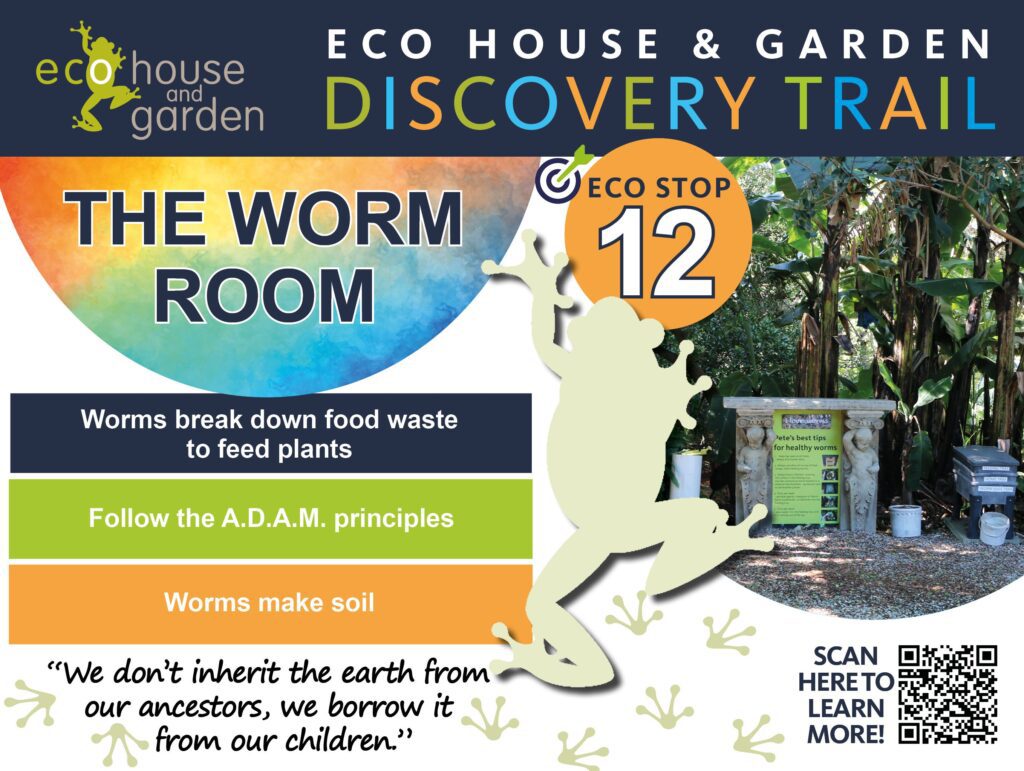

Wiggling Worms
Did you know?
- Worms breathe through holes in their skin.
- Worms have 5 hearts!
- Worm poo is a key component in healthy soil.
What is a Worm Farm?
Worm farming is the process of converting food waste into nutrient-rich castings via the scientific process of decomposition. Worm farming recycles organic matter and provides nutrients for plants to grow as well as providing worm juice, a fabulous fertiliser to feed your plants.
Can you find all our worm farms?
- There is a worm farm on 4 legs, called a worm café.
- There is one that is almost completely buried underground, can you find it?
- There is one on wheels standing tall and green – This is called a Hungry Bin
- Throughout the garden there are 6 more worm farms!
To make good quality worm castings we recommend you follow the A.D.A.M. principles.
Visit our website for step-by-step instructions on starting and supporting a worm farm https://kimbriki.com.au/education-hub/organic-waste-management/
The A.D.A.M. Principles and Worm Farms
Aliveness – the worm farm should be full of life! There are macro invertebrates like worms and microorganisms like bacteria and fungi, that are an important part of the decomposition process. They all contribute to breaking down the food waste and turning it into rich dark soil.
Diversity – you can add any fresh food waste to a worm farm. Sources of food waste include any fruit or vegetable scraps, eggshells, tea leaves and coffee grounds (tea bags and coffee bags are ok if made of paper not plastic). Cooked food, citrus peel and onion are ok but only in small quantities. You don’t need to add equal quantities of carbon to a worm farm, however soiled kitchen paper is a great source of carbon. We recommend you add a teaspoon of dolomite lime (compost conditioner) once per week to your worm farm to balance the pH (available from EcoHouse).
Aeration – the worm farm should be turned weekly with a Little Digger tool (available from EcoHouse) or a small garden fork. This promotes faster decomposition. All the organisms in the worm farm are alive so they need to breathe to do their job properly.
Moisture – worm farms should be watered roughly once per week. Leave the tap in the open position. The water will filter through the worm farm and drip out the bottom into a bucket or watering can placed underneath the tap.


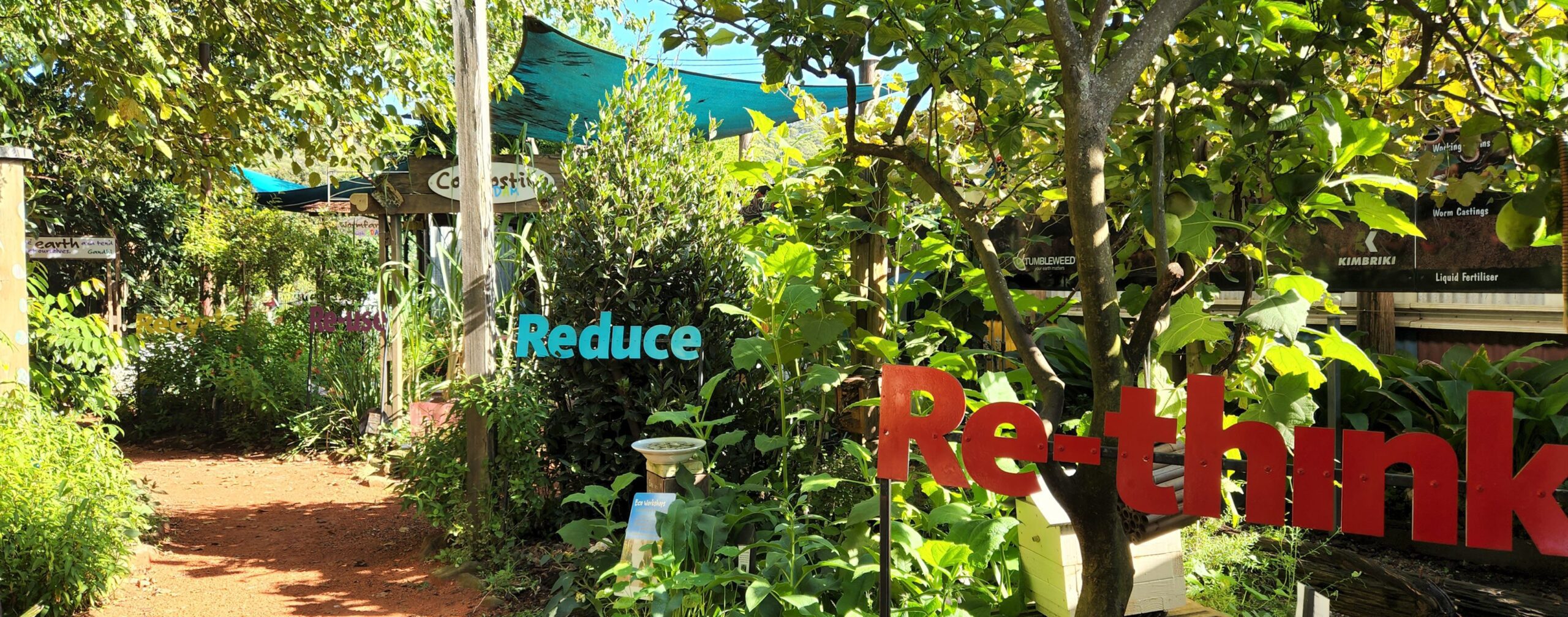

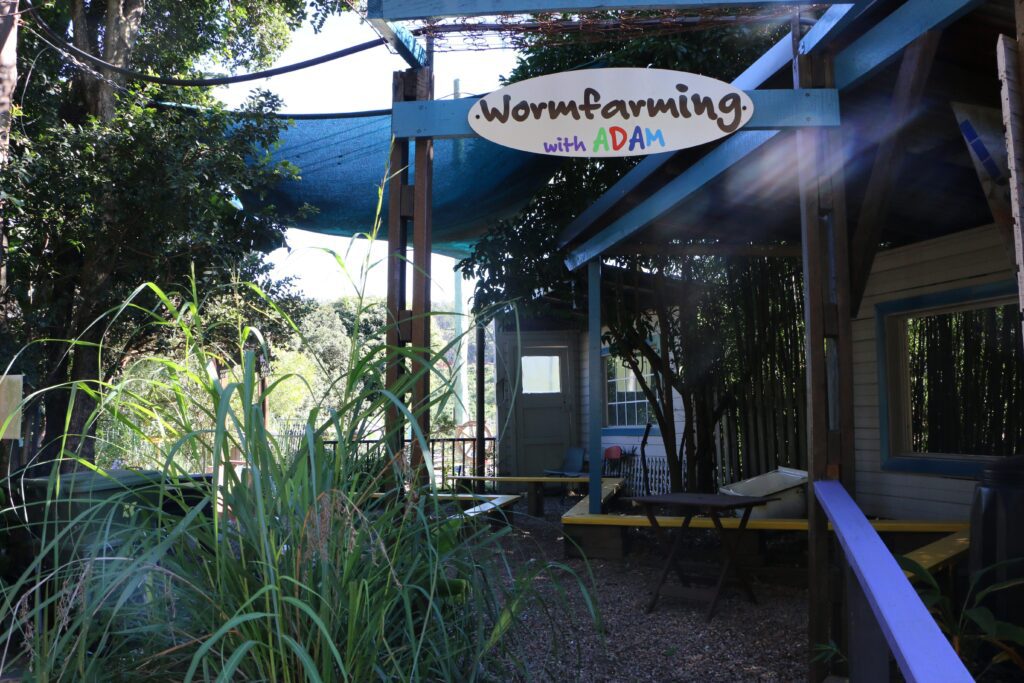;)
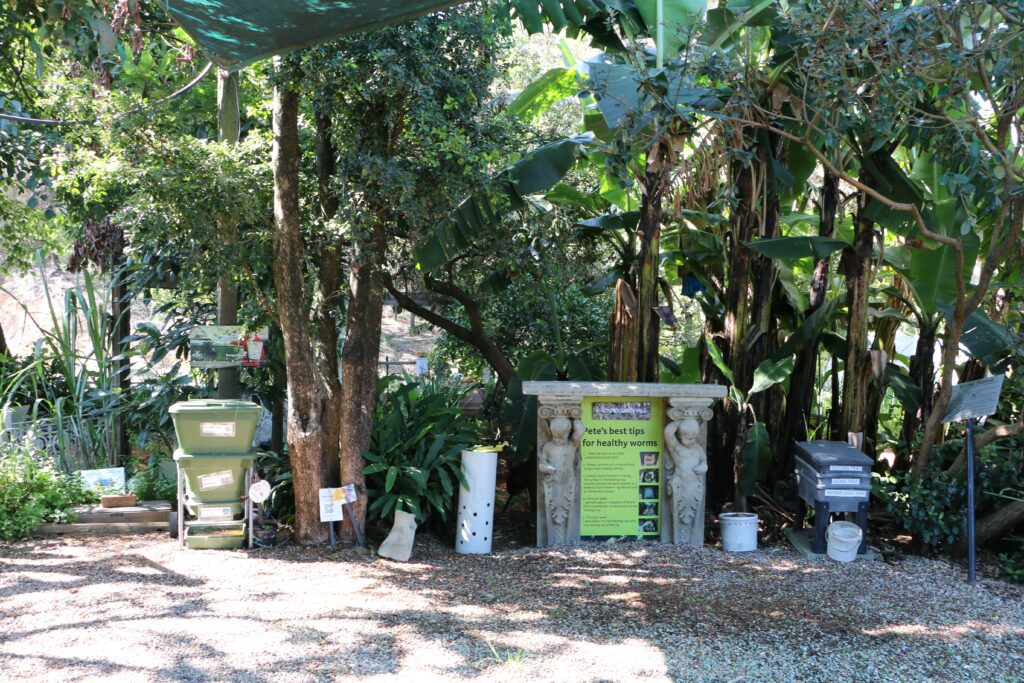;)
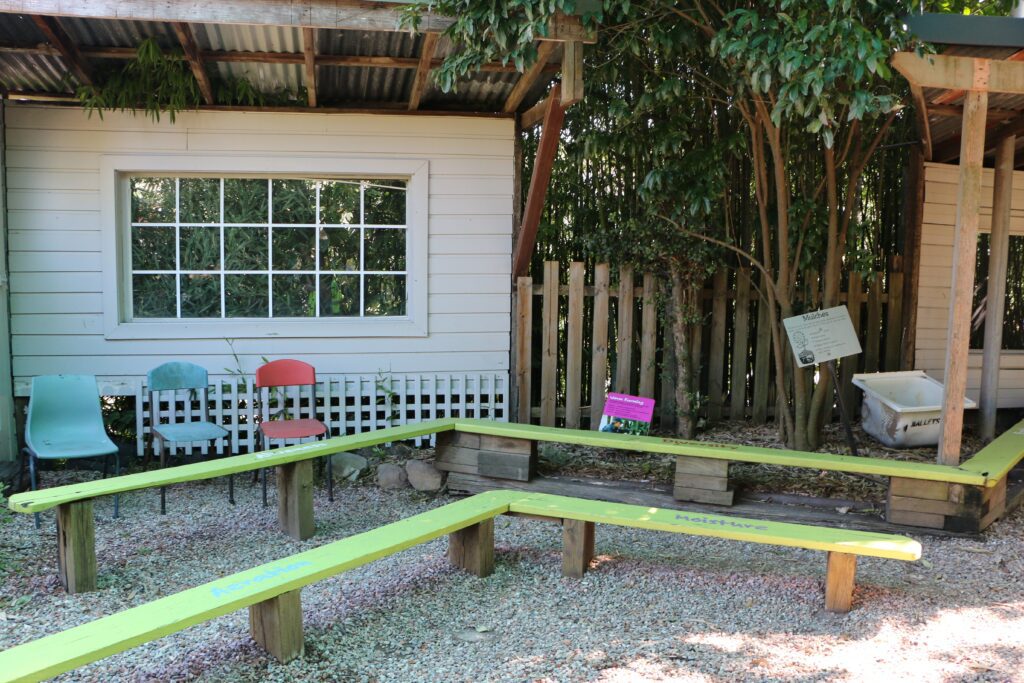;)
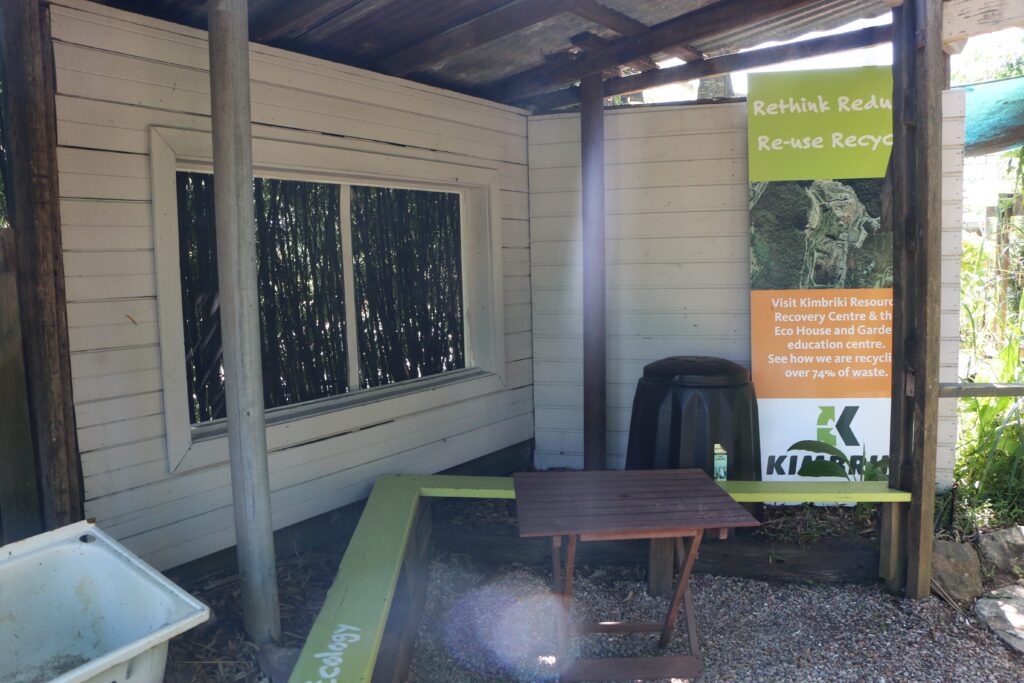;)
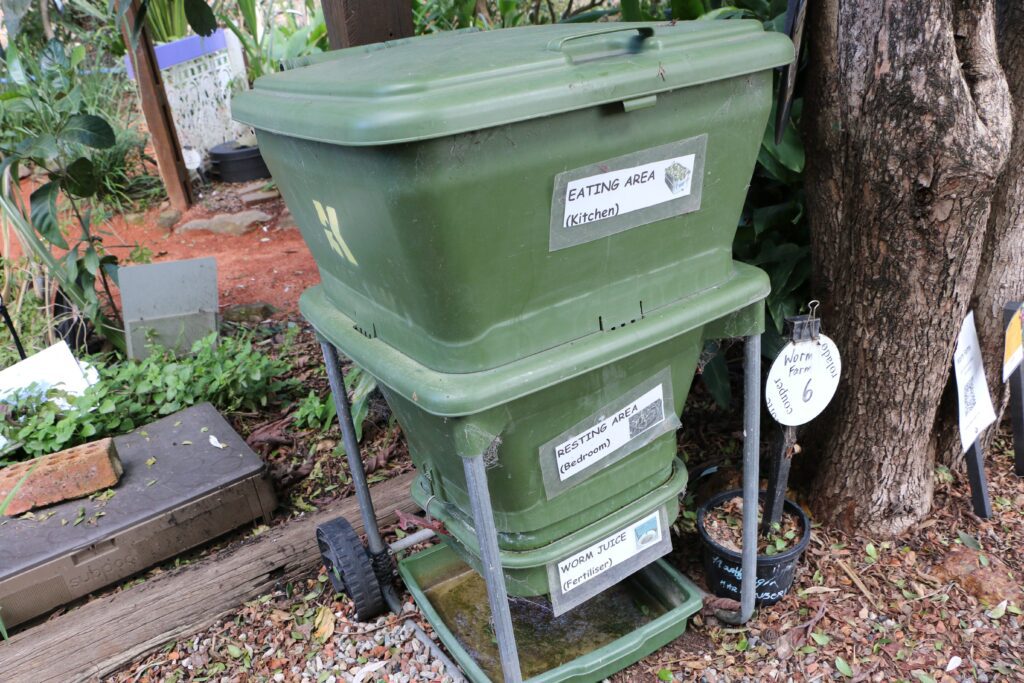;)
;)
;)
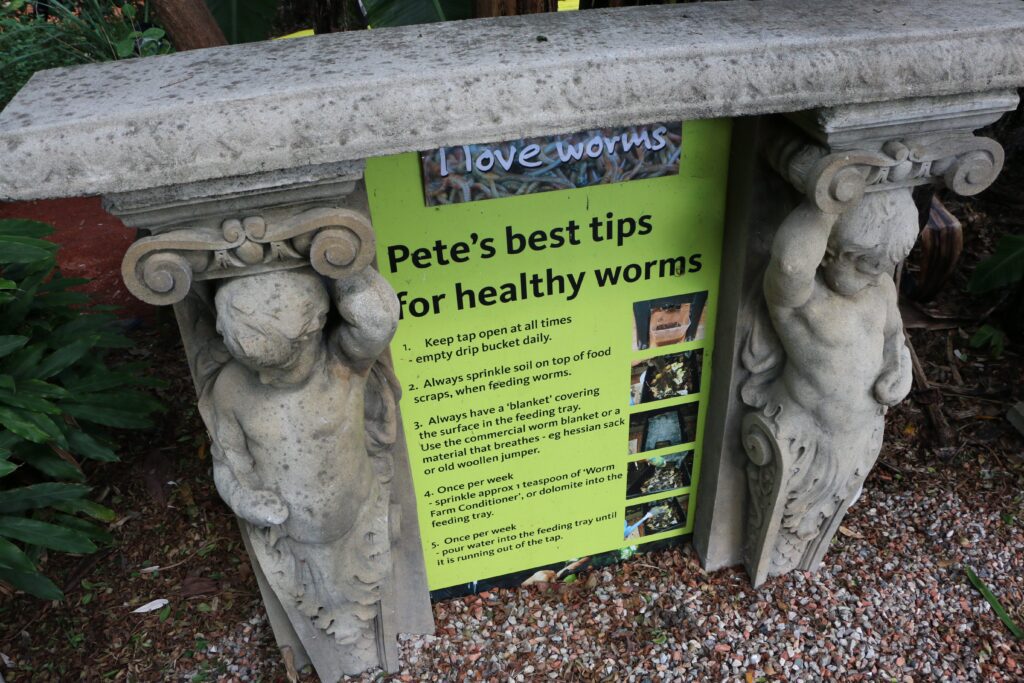;)
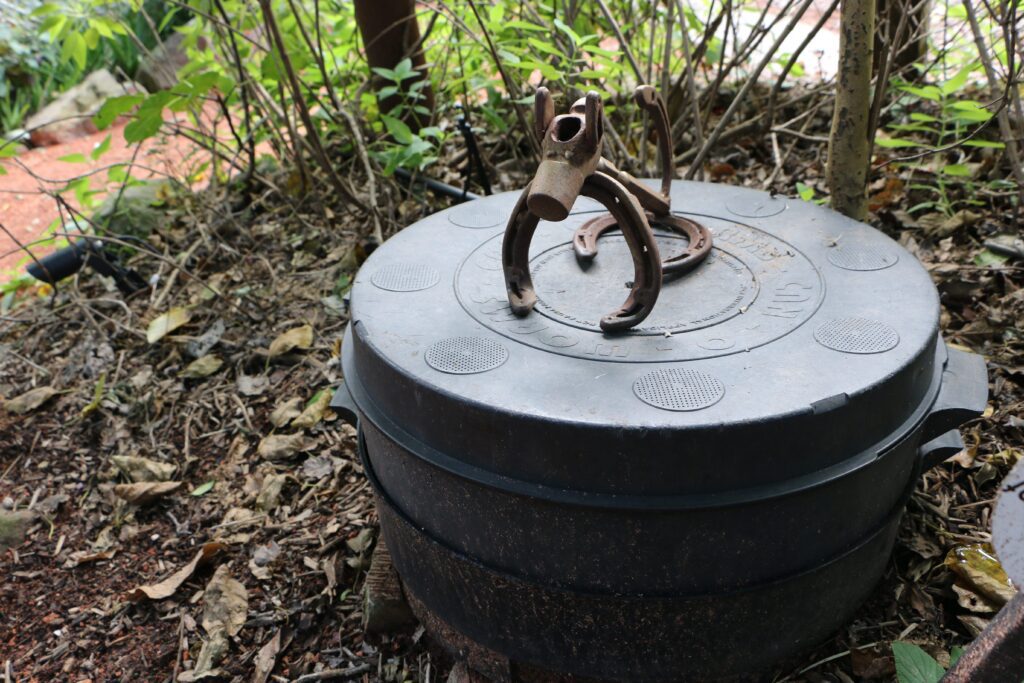;)
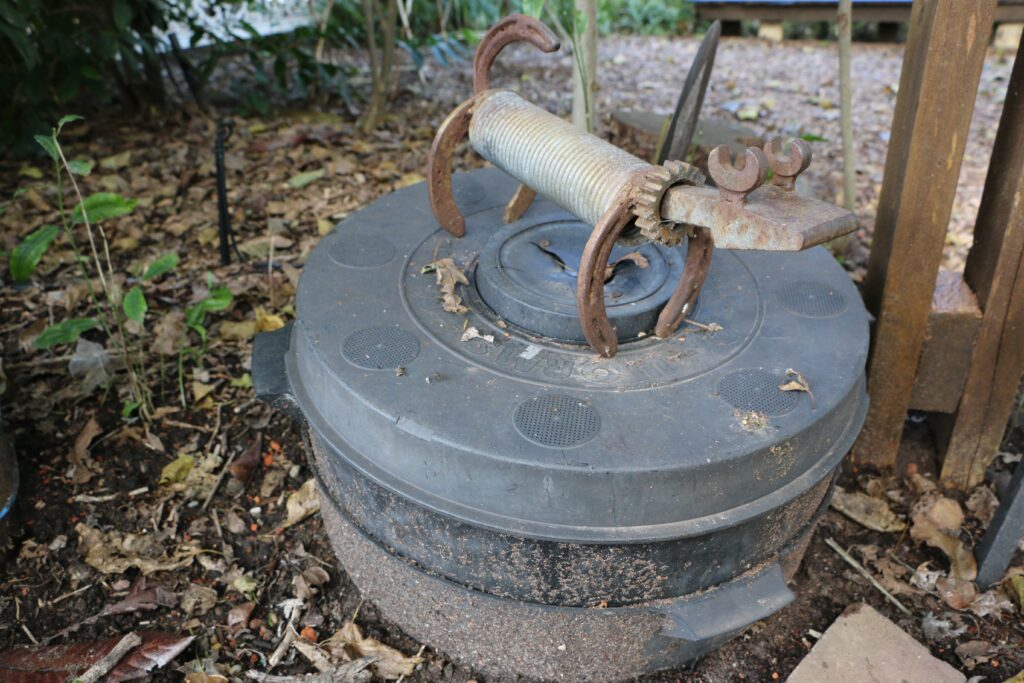;)
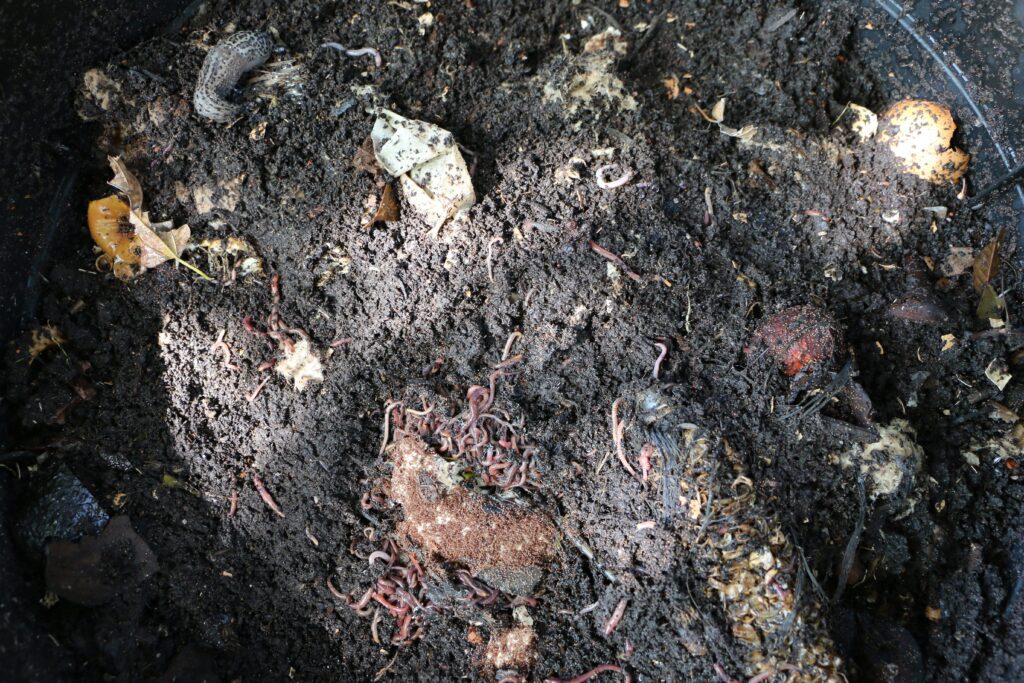;)
;)






